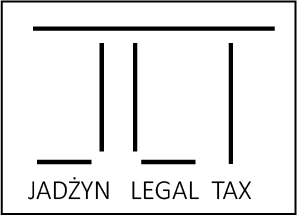
EU regulations regarding delivery with installation or assembly
The European regulations know so-called delivery with installation or assembly, which are provided for in Art. 36 VAT Directive. At the EU level, the place of supply with installation or assembly is the place where the installation or assembly takes place. Where goods dispatched or transported by the supplier, by the customer or by a third person are installed or assembled, with or without a trial run, by or on behalf of the supplier, the place of supply shall be deemed to be the place where the goods are installed or assembled.
Basically, therefore, the delivery with installation or assembly should be taxed with VAT there, where the object of delivery is installed or assembled. If the installation or assembly is carried out by a foreign taxable person in Poland, the place of delivery is Poland. Therefore VAT should be charged in Poland.
Does that mean, however, that the foreign entrepreneur should register in Poland for VAT purposes and has to submit a VAT declaration in Poland?
Delivery with installation or assembly according to Polish law
The Polish Value Added Tax Act provides for a similar regulation as in Art. 36. The place of supply of goods is the place where the goods are installed or assembled, whether or not they are being tested. The simple activities which enable the functioning of the assembled or installed goods according to their intended purpose are not considered as installation or assembly (article 22, paragraph 1, point 2 of the Polish VAT Act).
If the delivery with installation or assembly is carried out in Poland, this transaction is to be declared in Poland for VAT purposes. Basically this means that the foreign entrepreneur (the supplier) should issue a invoice with Polish VAT. For this he would first have to register in Poland for VAT purposes. However, EU legislation allows for the possibility of applying the reverse charge procedure in case of supply with installation or assembly. Polish regulations provide for the possibility of transferring the tax liability to the person to whom the goods are supplied.
Thus, in Poland, a prerequisite for the application of the reverse charge procedure is that:
- the delivery with installation or assembly is carried out in Poland;
- the supplier does not have a registered office or fixed establishment in Poland;
- the supplier is not registered for VAT in Poland;
- the purchaser is a taxable business entity;
- the delivery does not take place as part of a distance selling to Poland.
If all of the above conditions are met, the supplier can transfer the tax liability to the purchaser (reverse charge). In this case, the supplier issues a net invoice with a note “VAT reverse-charged”. In the invoice shall be also indicated the VAT identification number of the Polish purchaser. Before invoicing, it is always recommended that the VAT number of the purchaser is checked. It can happen that the VAT number is no longer valid.
VAT registration for delivery with installation or assembly in Poland
Under Polish legislation, there is no obligation to register in Poland for VAT purposes if the supplier does not have a registered office or fixed establishment in Poland and carried out in Poland only supplies of goods where the recipient is the taxable person due to reverse charge mechanism.
If the application of the reverse charge procedure is used for a delivery in Poland, the supplier from other EU state is not obliged to register in Poland for VAT purposes. He has an option to do so. If the foreign supplier has decided to register for VAT in Poland, he has to issue an invoice with Polish VAT. In such case, it is not possible to use the reverse charge mechanism.
More about the VAT registration in Poland you can find << HERE >>.
Even before undertaking the transaction, which may be subject to VAT in Poland, it is advisable to carry out a tax analysis on whether the registration requirement in Poland will arise and what the consequences may be. The late registration can lead to negative consequences for a foreign entrepreneur. It would therefore be useful to clarify with a specialist whether a registration obligation in Poland will arise.
If you need further information on VAT registration in Poland and tax assistance, please contact JLT at any time. Our more than 10 years of experience in the support of international clients guarantees high quality and efficient legal and tax consulting in Poland.
radca prawny i doradca podatkowy
Rechtsanwalt und Steuerberater
JLT Jadżyn Legal & Tax
Poznań / Posen

